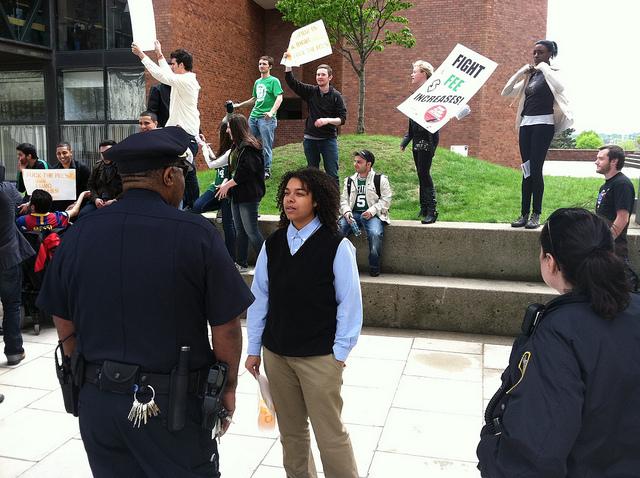So you don’t want to pay an extra four dollars a day for parking? I can’t argue with that. I sincerely doubt anyone likes the idea of paying up to ten dollars a day for the right to leave their car in a parking lot while they attend or teach classes. So it is not surprising that the proposed increase in parking fees has garnered backlash from the outspoken student body here at UMass Boston. Stickers demanding “economic fairness,” rallies and indignant attitudes have manifested themselves on campus, attacking the administration for practices deemed unfair and unjust.
As a public university, UMass Boston is expected to maintain low costs for its students. The parking fee increase fits into UMass Boston’s changing narrative as it attempts to price out its traditional urban demographic in hopes of becoming a more typical four-year school. The increasing tuition costs and planned creation of dorms lends further credence to this point, which is not without veracity.
UMass Boston is indeed changing, and the merits of these changes can certainly be debated. But it is important to understand that an increased parking fee has nothing to do with avarice on the part of the administration, and has everything to do with a need for increased revenue.
While the university is undergoing a substantial long-term change in its mission and constituency, it is also undergoing a fairly evident short-term change with the creation of the new science building. The new facility may bring additional students to the school in the future, but it requires a large amount of capital. The revenue for this building must come from somewhere, and the options are limited.
It is true that UMass Boston is funded in part by the state—the school receives a fixed amount each year—and additional state revenue could only be achieved through additional taxation on the people of the Commonwealth. Taxes would hurt the statewide economy at the expense of our school, and could make the institution less favored in the eyes of the state—politicians might shirk from supporting UMB in the future. Increased tuition costs and fees, or cuts to staff numbers or salary, could raise revenue—unsavory moves that would be condemned more harshly than current tactics.
The administration could succumb to pressure and forego improving the facilities in order to maintain current parking fares. It may sound like the best deal for currents students, but a university without updated facilities cannot expect to attract quality students and professors. Investment is integral to higher education; without it, progress is both financially untenable and antithetical to the bigger picture.
Of course, there are legitimate concerns about the ability to pay for parking. One Stop attendee Rich Kosmo points out that as parking fare goes up, quality and availability have decreased. “Until there is more [parking] available, I don’t think it’s justified at all,” said Kosmo of the impending fee hike. While the increased fare and want of spaces caused by temporary closing of the North Lot are—as far as I can tell—unrelated, the fact remains that increased fees will have a real effect on the student population.
There is certainly a debate to be had on whether the fare increase is good policy. However, framing the debate as a battle between a selfish administration and an oppressed student and faculty body is neither informative nor accurate. Polarization causes resentment and benefits no one. Something like this fee increase must be seen from both perspectives to be properly understood—civil debate must be grounded by facts.
Fees are not raised arbitrarily or vindictively. The truth is that trade-offs must be made if UMass Boston is to continue to develop, and that sometimes may entail increased costs for the people who attend or work at the school.
And at the end of the day, if you simply cannot cope with the extra four dollars a day, you can always just take the train.

